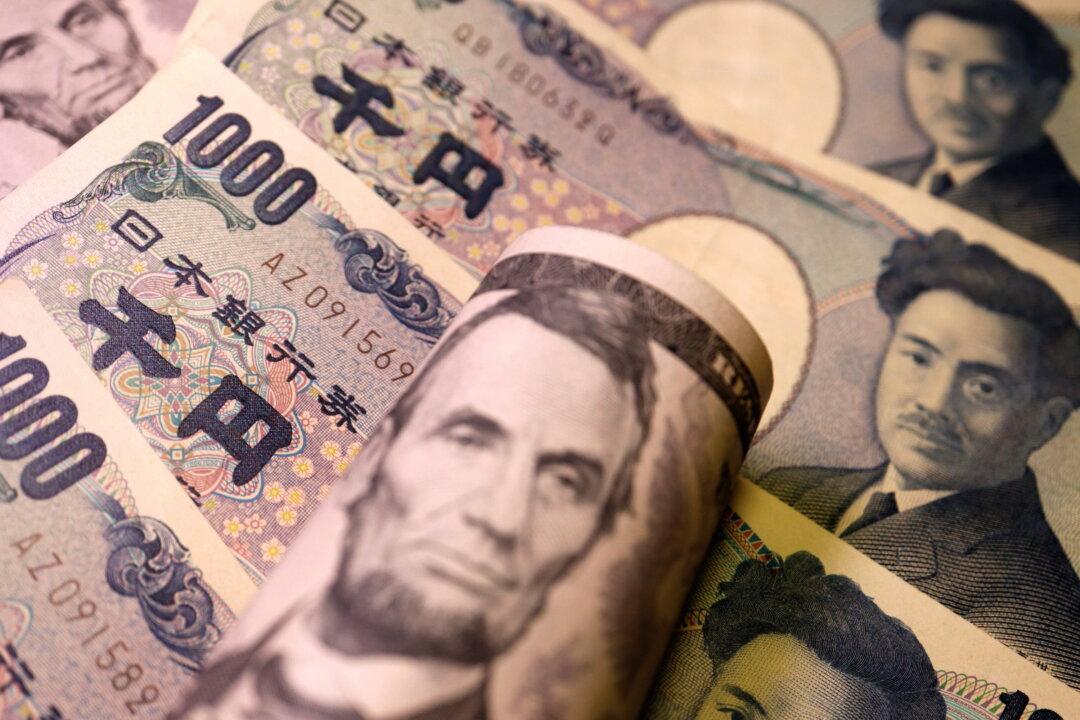LONDON—A blast of suspected intervention by the Bank of Japan (BOJ) on Monday to boost the yen did little to tame the dollar, while the pound see-sawed as former finance minister Rishi Sunak emerged as the front-runner to be the next British prime minister.
The yen hit a low of 149.70 per dollar overnight before being swept to a high of 145.28 within minutes in a move that suggested the BOJ, acting for Japan’s Ministry of Finance (MOF), had stepped in for a second day. The yen was last at 149.37, down nearly 1.1 percent on the day against the greenback.





